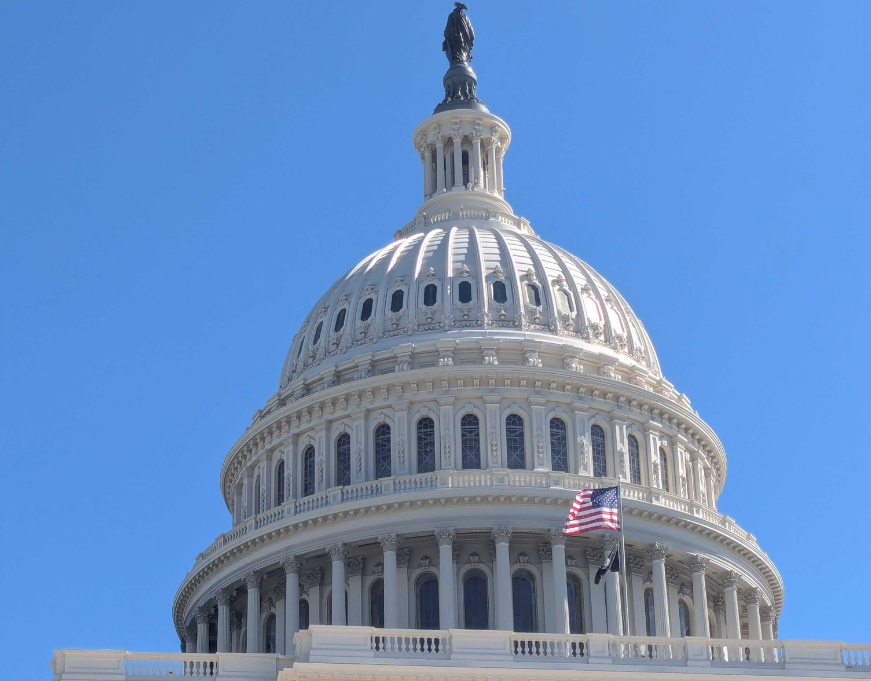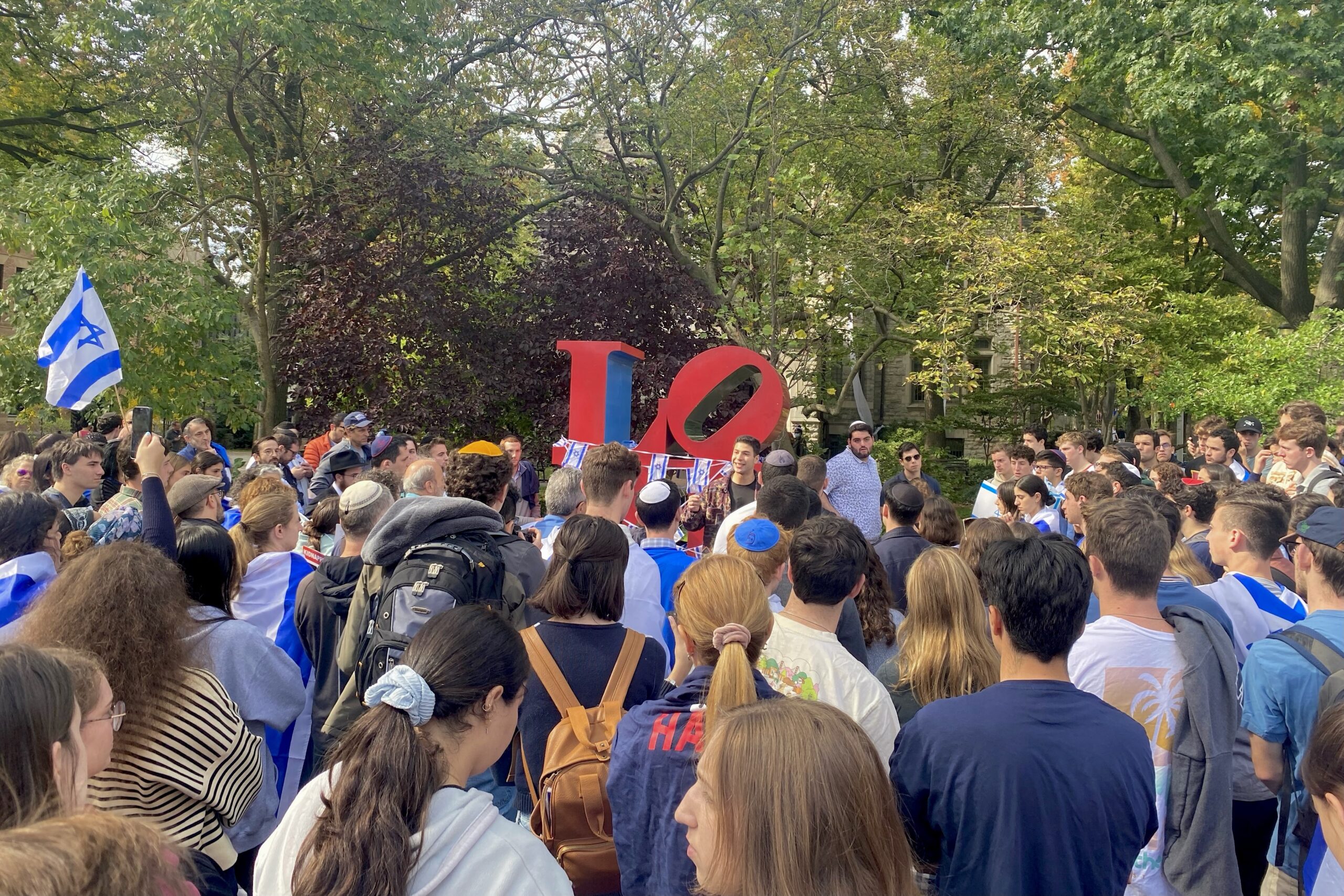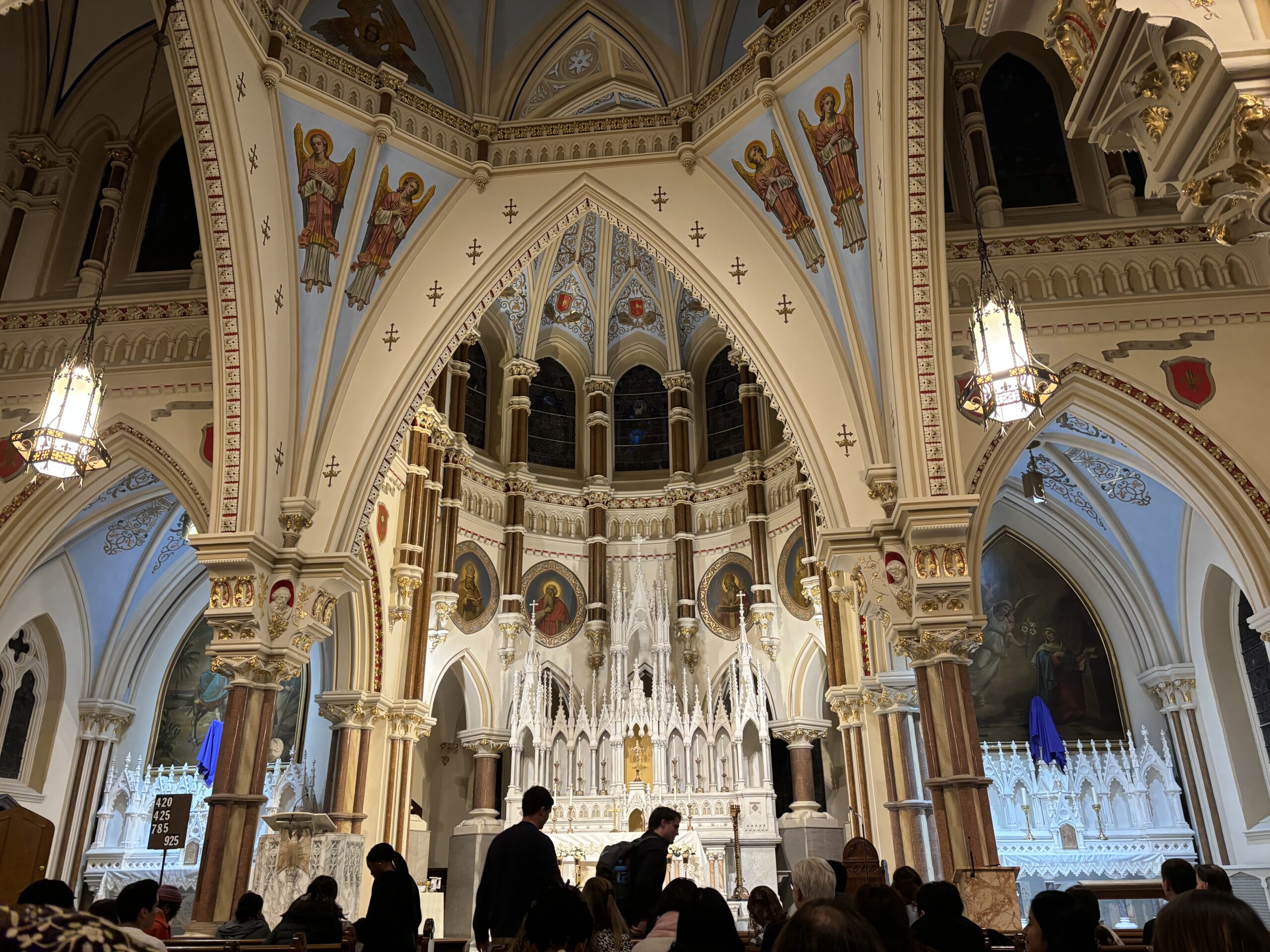Here’s everything you should consider before applying to Penn in Washington, from a current Penn in Washington participant.
Photo Credit: Emma McClure
By: Emma McClure
Are you interested in public service? Politics? All things life in Washington, DC? Penn in Washington could be just the program for you. Here’s what you should know before applying:
What is Penn in Washington?
Penn in Washington (PIW) is a semester program that places a small group of students with interests in public service to live, work, and study in Washington, DC. The PIW cohort is comprised of roughly 25 students, recently expanded, with various academic and career interests related to public service and policy. Traditionally, students in PIW intern on the Hill, at various federal agencies, or at NGOs and think tanks related to their interests. However, students may choose to conduct self-guided research in place of an internship. Students also take three political science courses in the evenings, held at the Penn Washington Center.
What are the classes?
While the specific courses may vary between semesters, PIW typically includes one foreign policy and one domestic policy class. These classes are each taught by a team of two adjunct Penn professors who bring a unique blend of experiences and perspectives to their classes. You should expect that your professors will not agree with one another on everything: you might have one Republican and one Democrat working together to teach your course. These classes will ask you to engage with policy issues as though you are a Hill professional, including writing decision memos, pitching policy proposals, and acting out congressional hearings.
Your third class is PSCI 2200, titled “From Theory To Practice In Washington, D.C.”, taught by the PIW program director, Dr. Deirdre Martinez. This class, which is worth two credits, is primarily asynchronous and will meet only a few times over the course of the semester. Unlike the other two classes, this course is dedicated to your professional development and is intended to keep you on track to reap the full benefits of a semester living and working in Washington. Assignments center around networking, personal reflection, and attending events like congressional hearings and think tank talks. Assignments specific to the internship and research tracks are also submitted through this course. This class is consistent through every semester in which PIW is offered.
What are the classes like?
PIW classes are very discussion based. Each of the two policy-oriented classes will have three to four key assignments, a few of which are likely to be group projects, and the remainder of your grade is participation based. Class meetings cover broad topics, such as tackling all of foreign policy in Africa or Asia in a single class, and the details of the conversation will be guided by the students more than the professors.
If you are genuinely introverted or dislike discussion based classes, the PIW structure might not be for you. Professors try to encourage participation through a number of techniques, some of which are more uplifting than others. Be prepared for everything from motivational speeches about how all perspectives are valued to somewhat brutal cold-calling on deeply philosophical queries.
Because classes can cover such broad topics and rely heavily on student led discussions, a level of prior knowledge is expected. The professors do not expect expertise, but they do expect that students engage with the assigned readings and do additional background research before arriving to class. The content will go deeper than an introductory level course, so students should be prepared to bring some prior understanding and background knowledge to class.
Part of living and working in Washington is being very plugged into the news of the day, so also be aware that the current political climate and daily news will be a significant source of conversation in your class meetings. Along with the assigned readings and your background research, you should be keeping up with current events and be prepared to contribute to the debates of the day.
Who does Penn in Washington?
Anyone can apply to PIW, regardless of major. Each cohort is unique, and cohorts vary in their general interests and level of technical knowledge. The common tie is that everyone in PIW has a definite interest in public service or policy.
That said, there are some trends. While you may hear that less than half of the PIW cohort are political science majors, this doesn’t capture the high number of philosophy, politics, and economics (PPE) students in the program. Altogether, students outside these two majors are fairly rare. The cohort is also skewed towards the pre-law population.
Of course, this is simple selection bias—most students interested in government and public service work gravitate towards these kinds of majors. Nonetheless, your major may be a valuable consideration as you decide whether or not to apply for PIW. Many students in the cohort enter the program with prior knowledge of political science theory and a strong background in the events you will discuss in your classes. While your perspective will be equally valued in class, there is potential to feel behind or less prepared for the program if your major does not offer the same background.
What about research?
When you’re applying to PIW, you must decide whether you want to participate in the internship track or the research track. The research track was introduced recently in response to the limited internship opportunities caused by federal hiring freezes at the beginning of President Trump’s second term.
Students on this track will submit a research proposal and will spend their time in Washington attending relevant congressional hearings and oral arguments at the Supreme Court, studying at the Library of Congress, and conducting informational interviews. They will submit regular updates and reflection logs and will conclude their semester with a poster presentation.
The research track is still a new addition to the PIW program, and no students have elected to follow this track yet. If you are considering the research track, keep in mind that your curriculum will be less tested than the internship track assignments. Because nobody has followed this track yet, you will have fewer alumni resources, and you will need to be more self-guided and open to experimentation.
What’s the internship hunt like?
If you wish to apply for the internship track, be aware that PIW does not place you in an internship; finding your job is your own responsibility. The PIW program provides limited support throughout this process so, here’s what you can expect from PIW during the internship hunt:
Once you are accepted, you will receive a program guide that includes some general information about what to expect from categories of internships, like working for committees versus personal offices or in the House versus the Senate. This might help you narrow down what opportunities you are interested in.
You will receive a spreadsheet with a list of internships held by previous members of the PIW cohort. Dr. Martinez may also send opportunities shared by PIW alumni. However, many of the internships from previous years no longer exist, and tracking them down may be time consuming. Because the program includes students with many different policy interests, you may not see many opportunities that align with your interests, especially once you include your political alignment in your decision. Ultimately, these resources can help guide your search, but you will still need to scour Handshake, Indeed, LinkedIn, and USAJobs for opportunities that fit your interests.
Regardless of what semester you will be spending in Washington, you are expected to draft a list of your top five internship choices and submit them to Dr. Martinez over the summer. This is primarily to keep you on track during your internship hunt, though you may receive some feedback on your list.
You will receive some guidance on how to write cover letters for DC jobs, which tend to differ from other internship applications. You will be required to submit your first cover letter to Dr. Martinez for review, and you may submit additional cover letters if you want support. In this respect, the amount of support you receive on your applications is dependent on how much energy you put into requesting support.
Many students are surprised by how time consuming the internship application process is. DC internships are extremely competitive, and government offices especially expect very personalized, thoughtful cover letters. You should expect long delays between responses, and the hiring process at many offices may include lengthy paperwork. Hill offices can be particularly frustrating, as many prioritize constituent applications and push aside non-constituents until later in the hiring process. Agencies often require security checks that can take upwards of a month, and failure to respond on time can cost you an offer.
Overall, plan on this being a frustrating and time-consuming process, and do not be surprised if you only begin to hear back in the last few weeks before the program begins.
What’s the living situation?
The Penn in Washington cohort lives in The Debonair, an intern housing facility in the Woodley Park neighborhood. There are four residential floors with three to six bedrooms per floor, shared bathrooms, and a communal kitchen and living space on each floor. Bedrooms all house two students, though students may request a single as space allows. The housing fee is comparable to on-campus housing.
Similar to an RA for on-campus housing, each floor has a floor-lead that ensures basic cleanliness, serves as a liaison to communicate any maintenance issues to the building owner, and helps manage issues with community spaces. There is also a PIW program mentor on site to provide support to students. The floor leads and program mentor occasionally organize floor and building wide activities like trivia and movie nights for the cohort.
The Debonair is located less than a block from a Metro station off the red line, the choice mode of travel for commuting to class and work. There are also multiple Metro bus stops within a block of the building, including routes to Trader Joe’s and Safeway for students to grocery shop. PIW students are given an unlimited Metro pass for the semester, making this a free and convenient mode of transportation around the city and to the surrounding suburbs.
Emma McClure is a junior in the College studying Criminology with minors in Legal Studies & History and Political Science. She is also the editor of The Social Ivy. Her email is efmcc@sas.upenn.edu.




